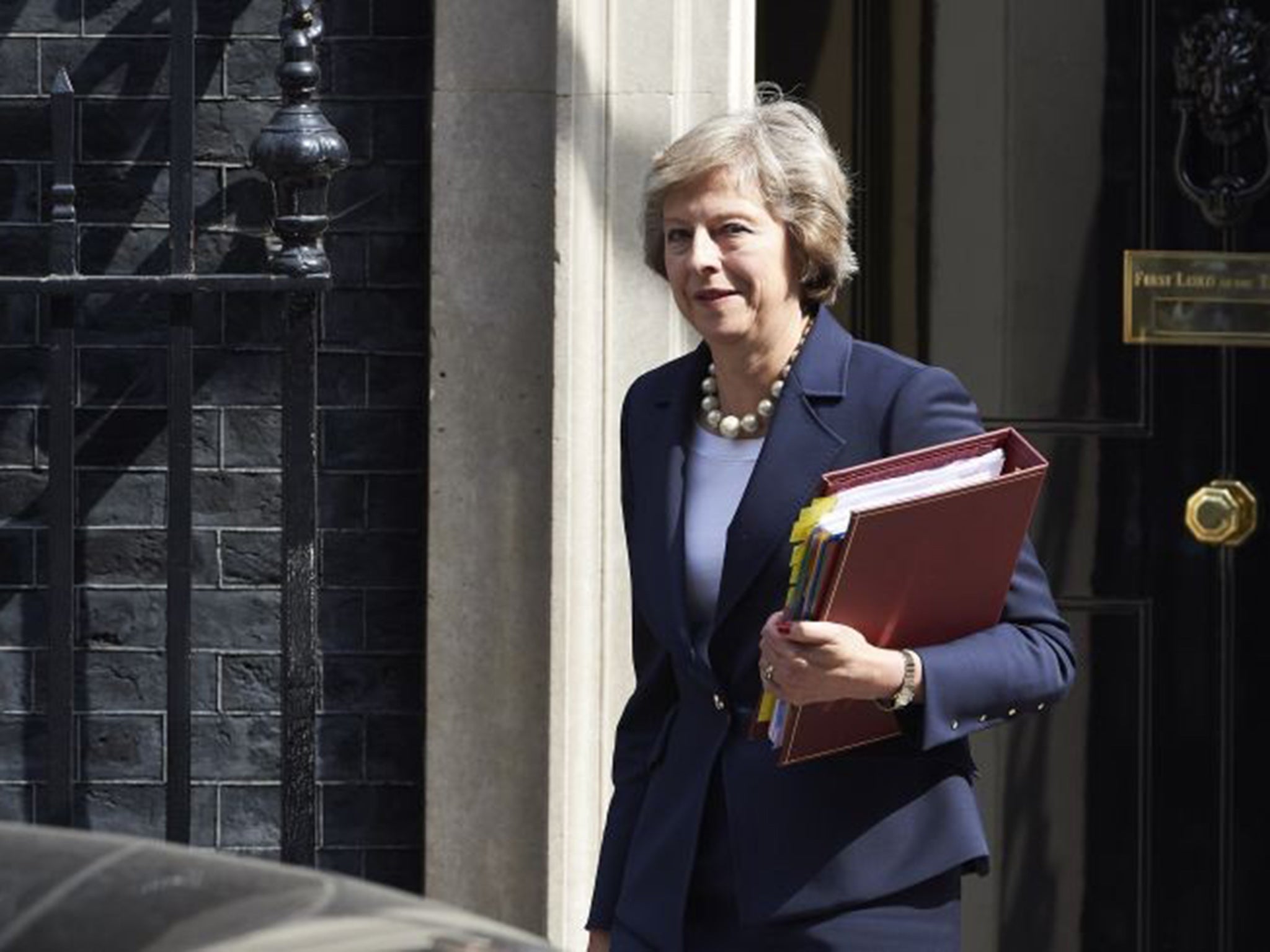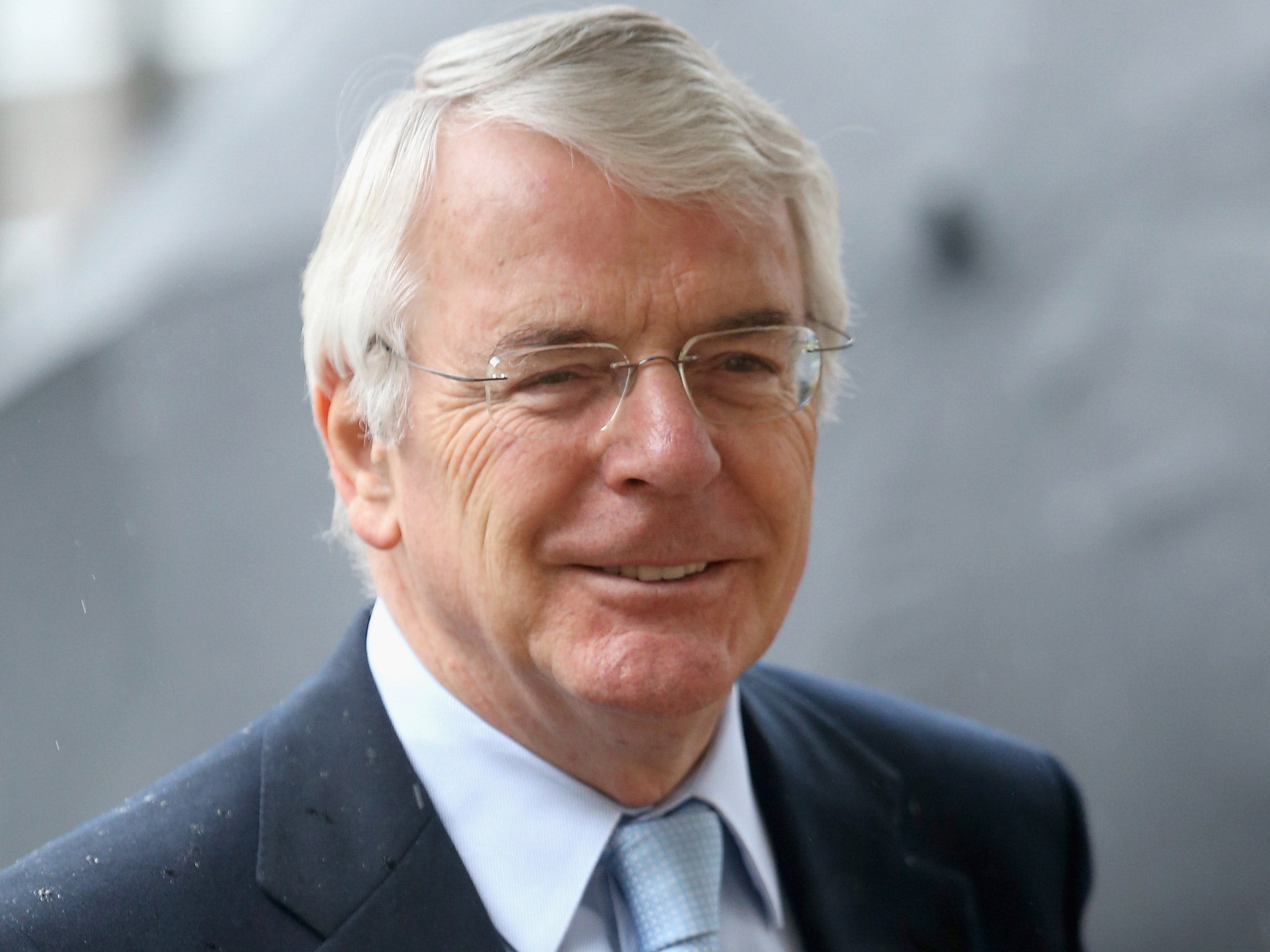Speculation over snap election as Tories take 16-point lead in polls
Conservative MPs believe the temptation to call an early vote would be greater if Jeremy Corbyn is re-elected Labour leader because they are convinced Theresa May would defeat him

Theresa May’s Conservatives have extended their lead over Labour to 16-points in a new opinion poll, prompting fresh speculation the new Prime Minister may call an early general election.
On current parliamentary boundaries, the latest of four survey’s reflecting the premier’s honeymoon period would increase the party’s slender majority of 12 to a massive 102.
Some 44 Labour MPs would lose their seats if the new ICM poll were borne out, leaving the party with only 188 MPs.
For now, such figures are fantasy politics, and considered unlikely to change the Prime Minister’s statement that she will not seek an election before the one due in 2020.
A snap election this autumn would add to the uncertainty caused by last month’s vote for Brexit, putting at risk the stability that Ms May’s swift election as Tory leader brought.
But some Tory MPs are starting to wonder whether Ms May would think again if her party’s poll lead continues into next spring. “She might find it hard to resist the temptation,” one senior Tory said. “She could argue that she needed her own mandate from the voters.”
Tory MPs believe the temptation would be greater if Jeremy Corbyn is re-elected Labour leader in September because they are convinced Ms May would defeat him in an election. Labour is unlikely to unite behind Mr Corbyn; a continuing Labour civil war would be another attraction of an early election for the Tories. A bigger Commons majority would mean that Ms May was no longer at the mercy of a hard core of about 30 Tory Eurosceptics, who are already worried that she wants a “Brexite-lite” deal with the EU and are demanding a “hard Brexit.”
But allies of Ms May insist she will resist temptation. They say that she does not need a mandate because she was in the top team when the Conservatives won last year’s election and is now implementing their manifesto. Privately, they say there is no appetite for an election among Tory MPs.
Ms May is seen as a cautious politician and so may judge that the risks of an early election outweigh the benefits. She will be reluctant to go back on her own words, which could alienate some voters.
She knows that the three other prime ministers who took over in mid-term in the last 50 years – James Callaghan (1976), John Major (1990) and Gordon Brown (2007) – also enjoyed a poll bounce which took their party from a deficit to a lead over its main rival. Only one of them, Sir John Major, went on to win the next election, although Mr Brown might well have done if he had not dropped plans for an early poll after succeeding Tony Blair.
Another reason for caution is that the Brexit vote is having a chilling effect on the economy, which could go into recession, which is hardly a good time to seek a mandate when you do not need to. The case for holding on until 2020 is strengthened by the new constituency boundaries that take effect then, and will be worth about 20 seats to the Tories.

Calling an earlier election would also involve a risk because the Fixed Term Parliaments Act says that an election is held every five years. A poll can take place earlier if two thirds of MPs agree, which would mean that both Tory and Labour MPs supporting the move, or if Tory MPs voted for a motion of no confidence in their own government. Such votes could be messy, and could even go wrong – for example, if Mr Corbyn’s Labour critics did not back an election for fear of losing their seats.
The ICM survey put the Tories on 43 per cent, Labour on 27 per cent - its lowest rating with ICM since 2009 - Ukip on 13 and the Liberal Democrats on eight. Martin Boon, ICM’s director, said: “Clearly, the relative calm associated with the handover of power from David Cameron to Theresa May, allied to the current Labour leadership challenge, weighs heavily on electors’ minds.”
In the other surveys conducted since Ms May became prime minister, YouGov gave the Tories an 11-point lead; another ICM poll showed a 10-point Tory advantage and Opinium a six-point one.
Join our commenting forum
Join thought-provoking conversations, follow other Independent readers and see their replies
Comments
Bookmark popover
Removed from bookmarks